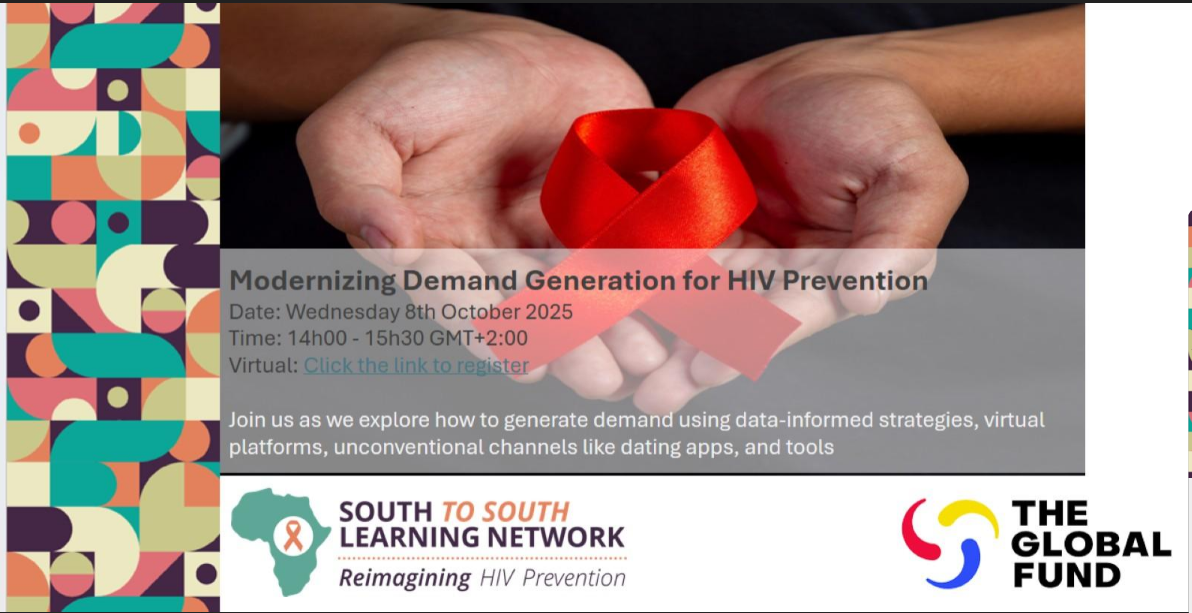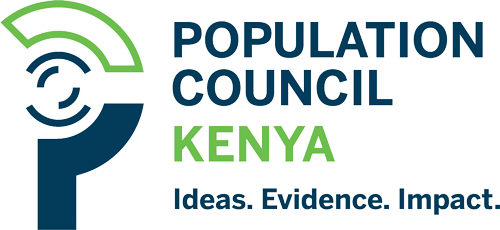Background
With HIV prevention budgets under pressure in African countries, governments and partners are seeking new ways to reach and motivate key populations. As prevention options expand—from condoms and HIV self-testing to multiple PrEP formulations—demand generation must evolve to remain data-driven, cost-effective, and impactful.
To address this, the South-to-South Learning Network (SSLN), in partnership with the Global Fund, convened a virtual session on 8 October 2025. The webinar explored innovative digital strategies and AI-powered approaches for HIV prevention demand generation, drawing on experiences from India, Ukraine, and global initiatives relevant to African contexts.
Objectives
- Highlight the importance of HIV prevention demand creation amid tightening budgets and expanding options.
- Demonstrate data-informed approaches suitable for resource-limited contexts.
- Showcase Global Fund-supported country examples of effective demand generation.
- Explore opportunities for collaboration with the private sector and digital platforms.
- Link efforts to Global Fund Cycle 7 (GC7) reprioritisation and prepare for Cycle 8 (GC8), including long-acting injectable PrEP (LEN).
Proceedings
Chaired by Lucy Maikweki (SSLN), the webinar opened with an emphasis on innovative approaches to demand generation. Susie McLean (Global Fund) noted that sustained progress in HIV prevention in Africa relies on data-driven communication and strategic partnerships.
Innovations in Demand Creation
Humsafar Trust (India) demonstrated large-scale, low-cost engagement using Meta, Google, and Grindr. Alliance for Public Health (Ukraine – TWIIN) showcased an AI-powered virtual social worker providing 24/7 HIV prevention outreach. Building Healthy Online Communities (BHOC) shared a community-centered model distributing HIV self-test kits globally via Grindr, illustrating scalable, no-cost outreach.
Relevance to GC8
Demand creation has been a major Global Fund investment. As countries prepare for GC8 and the rollout of long-acting injectable PrEP, innovative, cost-efficient strategies will be critical to sustain HIV prevention outcomes and ensure key populations are reached effectively, particularly in resource-limited African settings.
Key Takeaways
Participants emphasised the value of digital ecosystems complementing traditional outreach. Digital and AI-driven approaches enhance reach and efficiency, while collaboration with private and digital platforms expands impact. Data analytics can optimize audience targeting, and sustained innovation will be essential as funding and prevention needs evolve.
Closing
Lucy Maikweki thanked speakers and participants, reaffirming SSLN’s commitment to supporting African countries in adopting scalable, data-informed approaches that strengthen HIV prevention demand generation and improve health outcomes across the continent.
Download Event Material

















